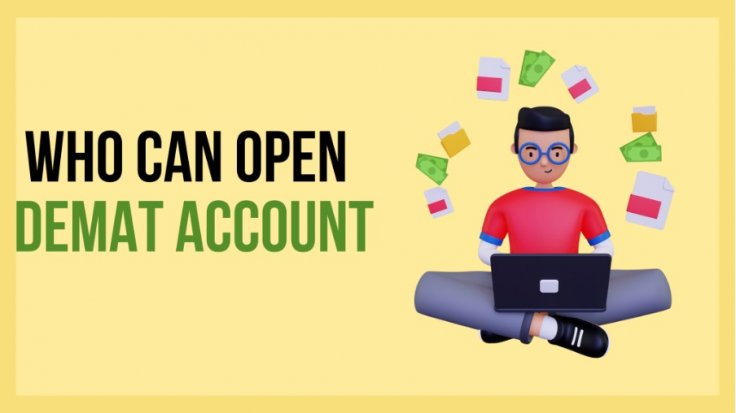
For many people today, the concept of a is a familiar one. In fact, a growing number of potential investors are opening Demat accounts due to increased exposure to stock markets. You may be wondering who can open a Demat account if you want to invest in shares or any other securities linked to your Demat account.
This article will give you the answer to who can open Demat account in India. To know more about Demat account eligibility and process, read the article ahead.
Eligibility Criteria to Open a Demat Account
The eligibility criteria to open a Demat account are as follows.
1. Age
Unlike popular belief, you don't have to be 18 years of age. Both minors and adults are allowed to buy stocks. The parents or authorized guardians may open a Demat account in the name of their minor by providing appropriate documentation. Until the minor reaches 18 years of age, their parents or guardians shall manage this account.
The depository participant will send the minor an advisory after the minor turns eighteen years old. It will seek the necessary KYC (Know Your Client) documentation to open and transfer details to a new account.
2. PAN and KYC data
You will need a PAN card to get started with your Demat account. You will need to send a copy of your PAN card with your KYC document when you open a Demat account. The E-KYC can also be completed online using your Aadhaar number.
Who Can Open a Demat Account in India?
A DP, or depository participant, can be any brokerage or bank that handles Demat accounts. The opening of a Demat account for each investor is authorized by those entities. It is important to know who can open a Demat account before opening a Demat account. It may be to invest in the stock market or before being allocated a subscription to any upcoming initial public offering. The Demat account can be opened by the following.
1. A resident of India
The Demat account may be opened by any person residing in India. In the four years before opening the Demat account, the individual has to be a resident in India for 365 days.
2. Any Indian Corporate
India's corporate and domestic organizations are allowed to open a Demat account. This means that a Demat account may be held by any company subject to the provisions of Section 2 (22A of the Indian Income Tax Act of 1961.
3. Hindu Individual Family or HUF
Any Hindu Individual family can open a Demat account under the terms of a Hindu Undivided Family, or HUF. The primary account holder is the eldest male member of the family.
4. NRIs
Non-resident Indians or NRIs, can also hold a Demat account.
5. Pooled account
A pooled account is a brokerage account where the securities of clients are held in combination. It's also called a clearing member account. You can also open a Demat account for this type of activity.
Process of Opening a Demat Account
In today's digital world, when almost all of your information can be stored in digital form, there is no reason for you to fill out physical forms. Fortunately, some brokers offer online processing of the transactions. The online registration process can be completed by customers. You can do it as long as you have an Aadhaar card with your mobile number connected to it!
- Go to the online Demat account opening page.
- After providing your basic information, click on Sign Up.
- Keep scanned copies of your documents of Aadhaar, PAN, Cancelled Cheque, and the most recent bank statement. Upload these files When you are instructed to.
- To authenticate yourself, enter your Aadhaar information along with the one-time passcode (OTP) you receive on the associated cell phone number.
Conclusion
The best place to begin an investment in a booming economy is the stock market. To get started, however, you will need a Demat account. To open a Demat account, anyone over the age of 18 must provide his PAN card, proof of identity, and address as well as complete the Know Your Customer form. Reputed platforms, such as the BlinkX stock trading app, offer online verification of documents to complete the account opening process. Once this process is completed, the client ID can be used for future transactions.








